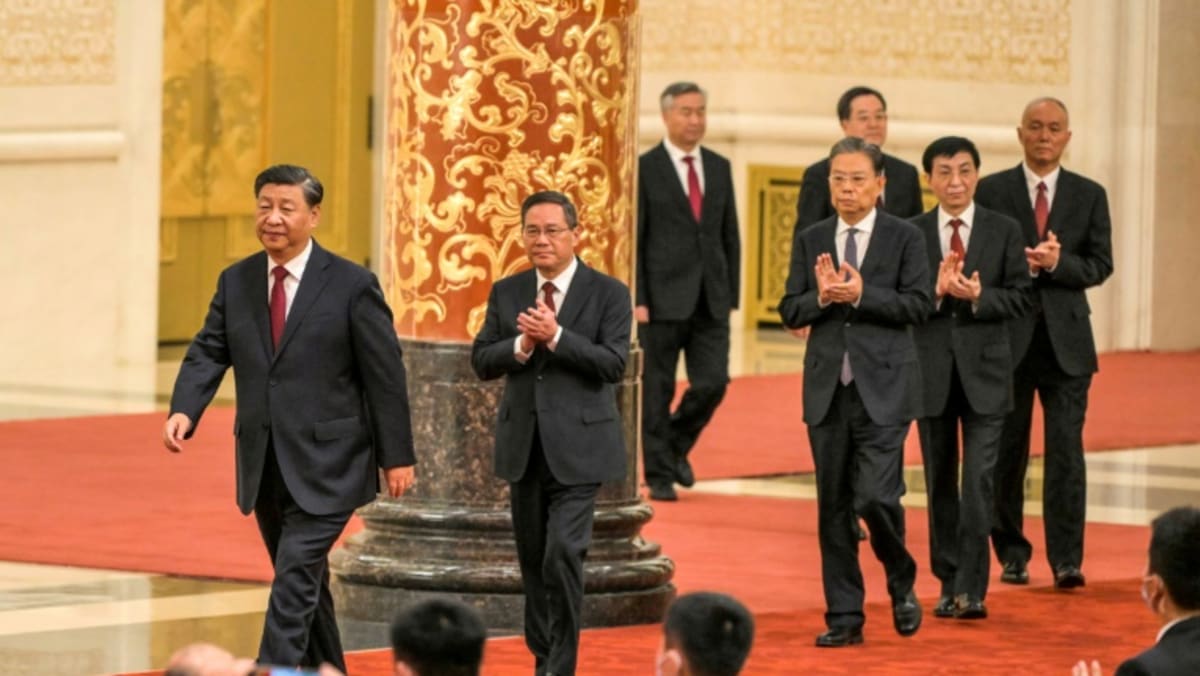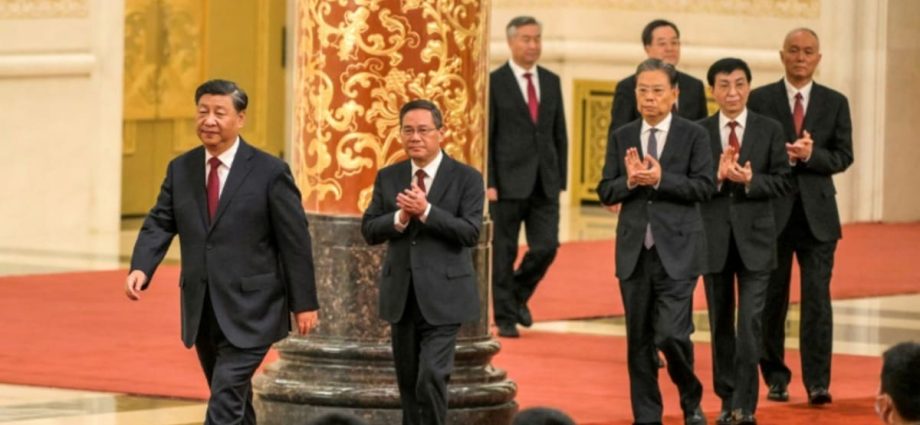
“The signal with the visit to Yan’an is one of celebrating a parallel (with Mao) and brooking no opposition,” wrote Manoj Kewalramani from the Takshashila Institution in Bengaluru, India.
A 16-minute news segment about the visit on state broadcaster CCTV showed several portraits of Mao, and a report by the official Xinhua news agency mentioned the former leader’s name 14 times.
The itinerary included visits to Mao’s former residence, as well as a hall where a pivotal CCP meeting in 1945 confirmed him as chairman, apparently showcasing Xi’s deep interest in party history and its influence on his rhetoric and policies.
But it also harked back to an era when the CCP relied on mass “struggle” to win a bloody civil war, which observers believe has parallels with how Beijing views the current geopolitical climate.
“Among the signals Xi appears to be sending … is prepare for difficult times ahead, and prepare for struggle,” analyst Bill Bishop wrote in his Sinocism newsletter.
Xi took the 2012 standing committee to an exhibition about national rejuvenation in Beijing, and the 2017 one to the site of the first CCP Congress in Shanghai.
“The first travels after each Party Congress seems to be about ‘remember the original mission’,” tweeted the Australian National University’s Wen-Ti Sung.
According to state media, Xi on Thursday vowed that his new standing committee would “inherit and carry forward the fine revolutionary traditions formed by the party during the Yan’an period”.
CRADLE OF THE REVOLUTION
Yan’an is revered in Communist Party lore as the cradle of the movement.
Nestled in the remote, arid mountains of northwest China, it was where party members hunkered down after the Long March, a gruelling year-long expedition by foot across the country to escape encirclement by Nationalist troops during the Chinese Civil War.
Tens of thousands died en route, and by the time the survivors arrived in Yan’an, they were a severely weakened force.
Mao and his allies, including Xi’s father, lived alongside local peasants in caves as they planned military campaigns.
The CCP’s eventual victory over the Nationalists saw the Yan’an period codified as a shining example of the Party’s ability to overcome adversity.

